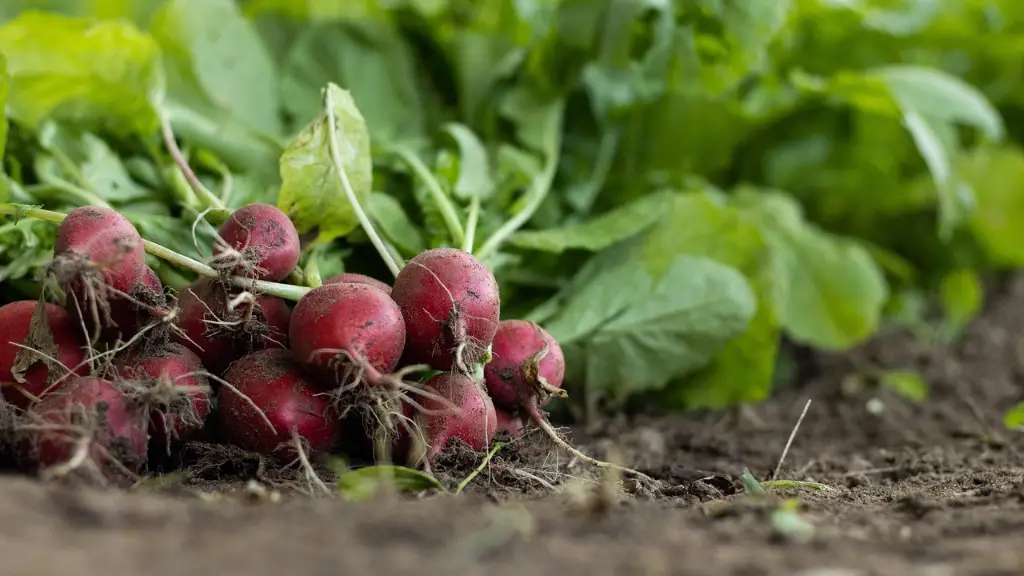Biofuels offer an attractive and attractive alternative to fossil fuels in the area of agriculture. They provide an efficient, clean, and renewable source of energy that can help to reduce emissions while allowing farmers to benefit from a secure, reliable and affordable energy source.
Biofuels are produced through a variety of methods, including fermentation, thermal processing and gasification. The vast majority of biofuel used in agriculture is ethanol, a by-product of corn, wheat and other grains. This ethanol is mixed with gasoline and can be used in both standard and modified vehicles.
Using biofuels instead of petrol and diesel can produce increased yields in crops grown for biofuel, reducing the energy and money spent on planting and cultivating these crops. In addition, the use of biofuels can reduce the amount of pollutants released into the environment, helping to reduce the global impact of agriculture.
The use of biofuels also helps to increase the productivity of farming operations. They contribute to the efficient use of resources, reduce costs and allow farmers to create higher yields while being able to use the same amount of land.
Biofuels can also help to reduce dependency on fossil fuels and hence help to reduce greenhouse gas emissions. This helps to reduce global warming, which in turn leads to improved weather patterns and therefore improved yields in farming.
Finally, biofuels can also help to improve energy security. By using renewable energy sources for agricultural production, farmers can avoid becoming vulnerable to fluctuations in oil and gas costs, further reducing their overall costs.
Production of Biofuels
Biofuels are produced from two different sources, namely renewable and non-renewable sources. Renewable biofuels are primarily produced from biological sources such as crops and plants, while non-renewable biofuels are derived from fossil fuels such as petroleum and coal.
The production of biofuels is typically divided into two stages, namely the upstream and the downstream stages. The upstream stage is responsible for the production of feedstock, which is the material from which the biofuel is derived from, while the downstream stage is responsible for the processing and refining of the feedstock into the product.
The type of biofuel produced will depend on the source of the feedstock. For example, biodiesel is produced from vegetable oils, while bioethanol is produced from corn, wheat and other grains. Each feedstock requires different processes and techniques for conversion into the final product, with some being more efficient than others.
The production of biofuels is carried out according to stringent international standards, which govern the composition and quality of the finished product. This ensures that the biofuel is safe to use in agricultural operations and provides the best possible fuel efficiency while releasing fewer emissions into the environment.
The cost of producing biofuels varies according to the type and quantity required. However, with advances in technology, the production cost of biofuels is gradually decreasing, making it an increasingly attractive alternative to fossil fuels.
Benefits of Biofuels
The use of biofuels in agriculture offers a range of benefits, including cost savings, a reduced impact on the environment, increased efficiency, and energy security. The use of biofuels can also help to reduce fossil fuel consumption, which can help to reduce global carbon emissions.
Biofuels generally produce fewer harmful emissions than petrol and diesel, helping to reduce the impact of agricultural activities on the environment. This can help to improve air quality and reduce the amount of pollutants that are released into the atmosphere.
Biofuels can also help to increase the efficiency of farming operations, allowing farmers to produce higher yields while using less land. This reduces the cost of planting and cultivating crops, resulting in cost savings for the farmer.
Using biofuels in agriculture helps to reduce the amount of fossil fuel used, improving the overall energy security of the farmer. This can also reduce their vulnerability to fluctuations in the price of oil and gas, helping to reduce costs and further improve their efficiency.
Finally, the use of biofuels in agriculture can help to reduce the dependence on fossil fuels and hence reduce the need for global carbon emissions. This can help to reduce the effects of climate change, leading to an improved global environment for agricultural operations.
Environmental Impact of Biofuels
The use of biofuels in agriculture has been shown to reduce the amount of harmful emissions released into the environment. Biofuel combustion typically releases fewer particulate, NOx and SOx than petrol and diesel fuels, resulting in a cleaner atmosphere.
Biofuels can also help to reduce the amount of land degradation that occurs due to farming activities. As no additional land is required for the cultivation of biofuels, there is no need to expand arable land, leading to fewer disturbances of the natural environment.
The use of biofuels can also help to reduce the amount of water pollution caused by agriculture. As biofuels have a lower sulfur content, they produce fewer pollutants that can cause water contamination. This helps to improve the quality of surface and groundwater, reducing the risk of damaging local ecosystems.
Finally, biofuels can also help to reduce the amount of land, water and air pollution caused by petroleum-based fuels. This can help to improve the overall health and well-being of citizens in the surrounding area, as well as reducing the cost of treating related health problems.
Limitations of Biofuels
Despite the advantages of using biofuels in agriculture, there are some limitations that should be taken into consideration. The efficiency of biofuels is generally lower than that of petrol and diesel fuels, which limits their ability to provide sufficient energy to power vehicles and machinery.
Biofuel production also requires land, water, and energy resources, which can limit their availability in some areas. This can reduce the amount of biofuel that is available and increase the overall cost of producing it.
The production of biofuels can also result in land degradation, as the cultivation of certain crops or plants can lead to an increase in the quantity of carbon dioxide in the atmosphere and a decrease in biodiversity.
Finally, the cost of producing biofuels is higher than that of traditional fuels, which can make them more expensive for farmers to purchase and use. This can reduce their overall cost savings and mean that the use of biofuels is not financially viable.
Conclusion
The use of biofuels in agriculture offers numerous advantages, including cost savings, reduced emissions, and improved energy security. However, there are some limitations to the use of biofuels, such as lower efficiency, resource requirements and cost considerations.
Biofuels can help to improve the efficiency of agricultural operations and reduce the impact of farming activities on the environment. However, it is important to consider the pros and cons of using biofuels before making a decision. Thanks to advances in technology, the production of biofuels is becoming increasingly more efficient and cost-effective, making it an attractive alternative to fossil fuels.




